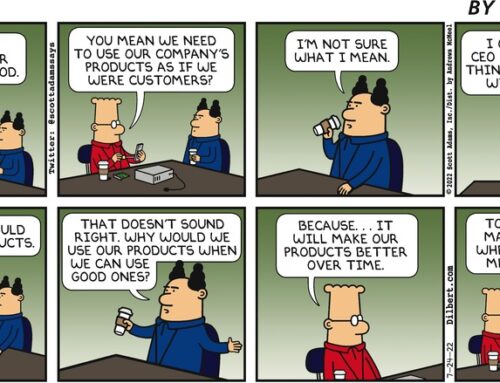 While managing large municipality projects, Municipal Public Works and Utility Directors are responsible for vast amounts of infrastructure assets. For example, parks, street signs, waterworks, and several other assets fall under their charge. These resources all require regular maintenance and each maintenance job requires a separate work order. Fortunately, individuals and teams can utilize work order management software to manage and track it all.
While managing large municipality projects, Municipal Public Works and Utility Directors are responsible for vast amounts of infrastructure assets. For example, parks, street signs, waterworks, and several other assets fall under their charge. These resources all require regular maintenance and each maintenance job requires a separate work order. Fortunately, individuals and teams can utilize work order management software to manage and track it all.
There are numerous benefits to this type of software, but before we explore them, let’s answer some key questions about this software’s core concepts.
What Does Management Mean?
According to Wikipedia, management refers to the administration of an organization. Management of an organization includes planning and controlling assets and other resources to achieve its objectives. Managed resources may include Human, Financial, Natural and Technology.
What Does Information Management Mean?
According to Techopedia, information management refers to the process of handling information. This involves:
- Collecting information such as work requests and infrastructure asset location and attributes.
- Storing this information in a way that it is easily accessible (i.e. from a web browser or mobile device).
- Managing the information by visualizing work on a map, reporting on maintenance repairs, etc.
- Maintaining the information to ensure accuracy. Allowing staff to update work orders in the field or submit GIS changes to the GIS specialist greatly improves information accuracy.
What Is Work Order Software?
Work order software allows an employee — and sometimes an external party — to add a work request to the management system. Modern work order software is web-based and can be accessed from a mobile device. Managers can review work requests and assign them to their staff to complete the work. The best work order systems can add labor hours, equipment hours, and material costs to the work order and associate the work request with an asset. These functions provide robust reporting capabilities.
So, What Is Work Order Management Software?
Work order management software is a system that helps managers not only track work orders but also complete them. They achieve this by using the software to schedule and allocate human, financial, and equipment resources. The best work order management software tracks the work order through every stage of its life, from request to completion.
In the case of Municipal or Local Government work order management, this software is used by the following personnel:
- Public Works Directors
- Fleet Managers
- Facility Managers
- Street/Road Superintendents
- Parks & Recreation Directors
- Solid Waste Managers
- Water, Wastewater, and Stormwater Managers
- City Managers
Work order management software is used to complete the following responsibilities:
- Keep track of day to day work requests, so nothing falls through the cracks
- Plan the work of Capital Improvement Projects (CIP)
- Organize the work of staff and equipment for optimal productivity
- Define preventative/scheduled maintenance and inspections to extend asset life
- Report on work activities and costs to effectively prepare for budget planning meetings
A work order management system is often tightly integrated with asset management so that equipment or infrastructure asset management details and maintenance history are readily available in one system.
Benefits of Work Order Management Software
Your large municipality project will run more smoothly and stay within budget when you take advantage of work order management software’s robust capabilities. Automate work reminders, schedule management reports, and reduce operational costs all with one easy-to-access digital platform.
Heightened Productivity
Work order management software allows you to create, access, and update assets and work orders from your office or in the field, so there’s no need to wait to get back to the office. It automates manual processes like scheduling, eliminating the risk of jobs getting missed or assets misallocated. Automated scheduling also improves performance processes, such as bottlenecks, departmental communication, and complex tasks, improving productivity.
Easier Access to Information
With highly organized information accessible from wherever you are, troubleshooting is easier and more effective. Repair and replacement decisions can be informed as preventative maintenance tasks can be linked to work orders and equipment. Web-based work order management software helps you easily capture crucial information so you can keep all stakeholders updated.
Reduced Operational Costs
Work order software allows you to track the following elements that all contribute to operational costs:
- Labor
- Parts
- Work requests
- Work order status
- Completion time
- Completed work
- Preventative equipment maintenance
The information this software gathers allows you to create and analyze informational reports over set periods so you can identify areas for cost savings.
Additionally, efficiently linking preventative equipment maintenance to appropriate assets reduces operating and capital costs by extending the life of equipment and infrastructure assets. Work order software also reduces the time spent managing work. More efficiently used management hours means reduced operational costs.
Grows with Your Municipality
The best kind of work order management software is designed to grow and adapt as your municipal operations change. It is a highly adaptable information management platform that allows you to tailor the software to your evolving needs. Some of the configurable components of this software include:
- Workflow Automation
- Forms, record lists, charts, fields, email templates, reports, and a robust permission system
- Documents and photos that can be attached to work orders and assets to increase clarity
Great Reporting
Accurate and up-to-date information is key to great reporting. With its web and mobile capabilities, work order management software allows information to be updated from wherever you or your colleagues are. Updating work orders at the point of completion eliminates delays and reduces errors. Customizable and real-time reporting and dashboard capabilities allow this information to be summarized in numerous ways.
Great reporting leads to:
- Accurate, up-to-date information
- Improved and in-depth visibility for managers and stakeholders
- Better, more informed decisions
Work order software simplifies how you manage and report on work. Increased visibility to information like productivity and repair costs helps you make better decisions and more effectively plan for the future.
The ShareNet Municipal Operations Management system combines asset management and work order management to give managers a powerful yet easy-to-use system for effectively and truly managing work orders.
Contact us today to schedule a demo




